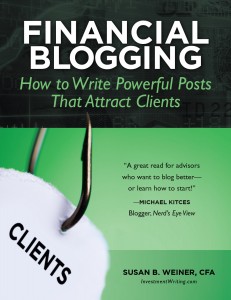April Newsletter: This is where you’ll find my newsletter from now on!
Starting in May, this newsletter will be published on the first Tuesday of the month here instead of arriving in your email inbox via Constant Contact. I’ll also share it via social media.
Set a calendar reminder for the first Tuesday of every month, and follow me on LinkedIn to increase the likelihood that you’ll see the newsletter.
Thank you for being a loyal reader and for understanding my decision to migrate the newsletter here!
Once you define an abbreviation, should you skip the spelled-out term?
Once you’ve introduced GDP as the abbreviation for gross domestic product, should you only use GDP in your articles or other publications? Yes, you should. At least that’s the opinion of most of the writers with whom I checked.
I also lean toward defining an abbreviation once and then using only the abbreviation. However, in a long piece, I could see redefining the abbreviation after a big gap in its use. How long is a long piece? As soon as the reader can’t find an abbreviation on the same page, you might make a case for reintroducing the complete term. However, this depends on the frequency with which the term is used. It’s easier to remember a term that’s used often.
A writer friend suggested that you can remind readers of the full word or expression by spelling it out in headings. That’s a judgment call.
However, if the complete term is used in a quotation, don’t abbreviate it when you use the quotation in your article.
Whatever you decide about this issue, your organization should consider adding your preferred practices to a style guide to ensure consistency. Also, if you use many abbreviations, you may find it useful to “Help your readers by linking to definitions,” as I discuss on my blog.
Tool helps you distinguish between seemingly similar words
Check out the WikiDiff website if you want to compare the definitions of two words that seem similar.
For example, go to the site to compare different and diffident. The two words sound similar, but their meanings are unrelated. Sure, you could Google the two words separately, but it’s handy to compare the definitions on one page.
The future of investment management
“Building a Future-Ready Investment Firm” is the focus of a research study released earlier this year by research partners including Deloitte. It touches on topics such as “How Digital Technology and AI Will Change Wealth Management.”
Your cooking and your microbiome
I was interested to learn that “Cooking dramatically increased the calories humans and mice got from food. Cooked meat yielded 10 to 15 percent more calories than raw. Cooked sweet potatoes were a whopping 30 percent more caloric than uncooked ones.” This is according to “You Are What (Your Microbes) Eat” in Harvard Magazine.
Speaking of cooking sweet potatoes, I enjoyed this sweet potato recipe using miso.
What my clients say about me
 “Fast, effective, insightful. I can think of no better resource for superior financial writing.”
“Fast, effective, insightful. I can think of no better resource for superior financial writing.”
“Susan has an exceptional ability to tailor investment communications to the sophistication level of any audience. She has an uncanny ability to make very complex investment and/or economic topics accessible and understandable to anyone.”
“Susan’s particularly good at working through highly technical material very quickly. That’s very important in this business. A lot of people are good writers, but they have an extensive learning curve for something they’re unfamiliar with. Susan was able to jump very quickly into technical material.”
Improve your investment commentary
Attract more clients, prospects, and referral sources by improving your investment commentary with 44 pages of the best tips from the InvestmentWriting.com blog.
Tips include how to organize your thoughts, edit for the “big picture,” edit line by line, and get more mileage out of your commentary.
Available in PDF format for only $9.99. Buy it now!
Boost your blogging now!
Financial Blogging: How to Write Powerful Posts That Attract Clients is available for purchase as a PDF ($39) or a paperback ($49, affiliate link).

 Hire Susan to speak
Hire Susan to speak
Could members of your organization benefit from learning to write better? Hire Susan to present on “How to Write Investment Commentary People Will Read,” “Writing Effective Emails,” or a topic customized for your company.








